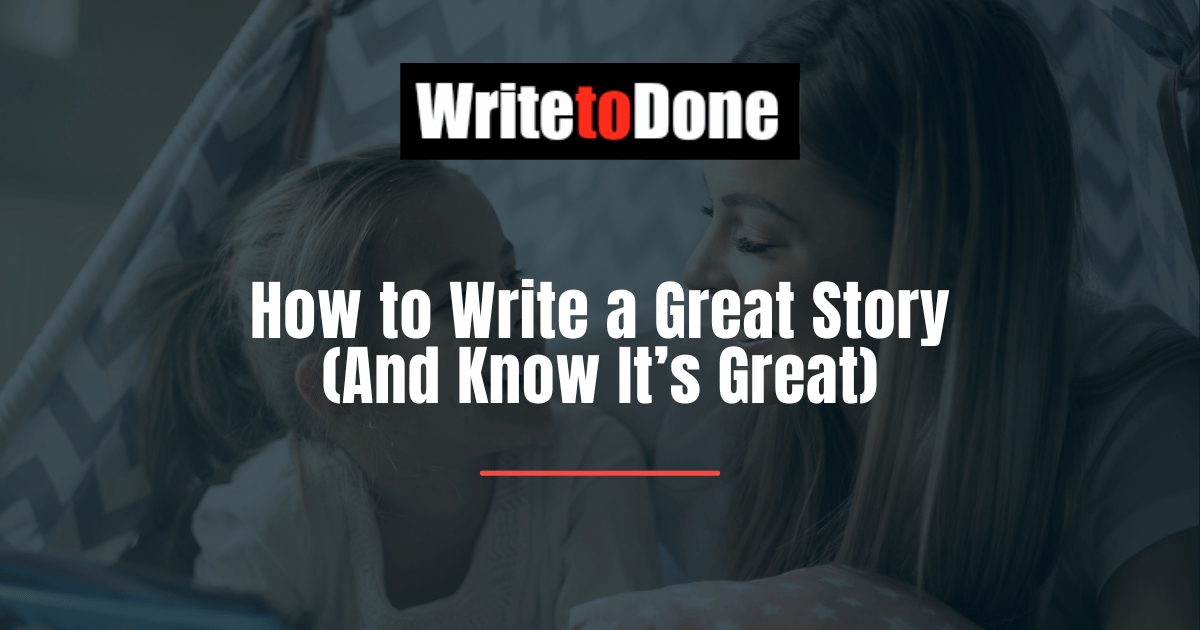You want to write a great story within 24 hours, right?
Of course, but how do you know it’s a great story?
Skill?Luck? Guesswork?
The answer is simple, if radical: Ditch the Traditional Approach.
Let’s not beat around the bush.
The traditional way of quantifying a ‘great’ story sucks.
Usually, it involves a bunch of esoteric buzzwords that sound impressive and mean precisely nothing. You’re told a good story is, “Unique and compelling,” that it, “Grabs your attention from the get-go and engrosses you throughout.”
Right. If it was that simple, everyone would be doing it.
Because here’s the thing. “Great” isn’t a quantifiable measure. It’s just too subjective. You might think your book is great—that it’s unique and compelling and the greatest thing since apple pie—but if no one agrees with you, you’re not going to get very far with it.
That’s why you need to measure things differently.
Try the “Hey, This Actually Works” Way
I stumbled across a different way of measuring things entirely by accident.
By working as a copywriter.
Because while classifying good fiction might be vague and confusing, the qualities of good copywriting are very, very quantifiable.
Good copywriting persuades your reader to take the desired action.
It’s that simple. In copywriting, you’re not here to create art. You’re not here to tell a story.
You’re here to convince the reader to do something.
Every decision you make is built around a simple question: will this be more or less appealing to my reader?
Will it get them to say yes?
And because your reader is a real person—a person you can interact with and research—the answer is real, too.
And you can use this exact approach in fiction writing.
How It Works
Take a look at this post. It explains the essence of good copy in length (and is seriously worth a read), but what it boils down to is this: understand what your readers want and address those wants.
In other words:
Find your reader, know your reader, seduce your reader.
So do the same thing for fiction writing.
Forget esoteric questions like if your story has artistic merit. All you need to know is if your readers will want to read it. Will it entertain them? Is it what they’re looking for?
And if you don’t know, ask. Ask your friends. Ask on sites like Quora or Reddit. Ask the subscribers to your blog.
And this approach isn’t limited to the big questions, like if your story is worth writing.
You can use the reader-focused copywriting approach to influence every aspect of your writing.
For example:
• Use short, punchy descriptions that are easy to follow.
• Break up those page-long paragraphs into ones that are easy to read.
• View every page as a sales pitch. You need to give them a reason to turn to the next one.
• Be clear. No one will read your work if they don’t get what it means.
• Be economical with your words. If you can say the same thing with less words, do so.
In short, whenever you’re facing a decision, ask yourself which way is more likely to get read.
The Caveat
But this tactic has limits.
Copywriting isn’t fiction.
There’s a rule in fiction: show, don’t tell. As it explains in this post, fiction is meant to engross the reader. You need to show the scene; you have to make your characters real and believable.
In copywriting, you tell. It’s a sales pitch. You have something to say, you say it, and you’re done.
So while this approach can help guide your fiction, you have to think like a fiction writer, too. In copywriting, you’re asking how to make your message appealing to your reader.
In fiction, you’re asking how to make your story appealing to a reader.
TL;DR
In short:
More often than not, the traditional way of classifying good fiction leaves writers struggling without even knowing why. They know their work needs to improve, but they don’t know how to make it better.
The solution is to think about it differently.
Stop thinking of your story as art—or, more accurately, stop only thinking of your story as art.
Start thinking of it as a product you’re selling to a reader.
What’s a great story?
A story readers want to read.
















